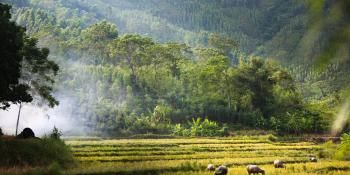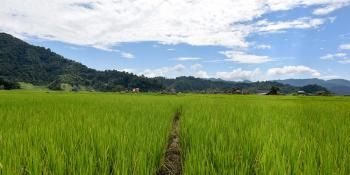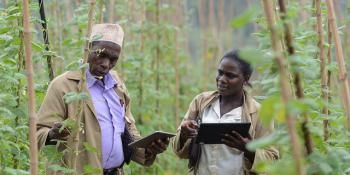Which way forward for climate-smart agriculture?
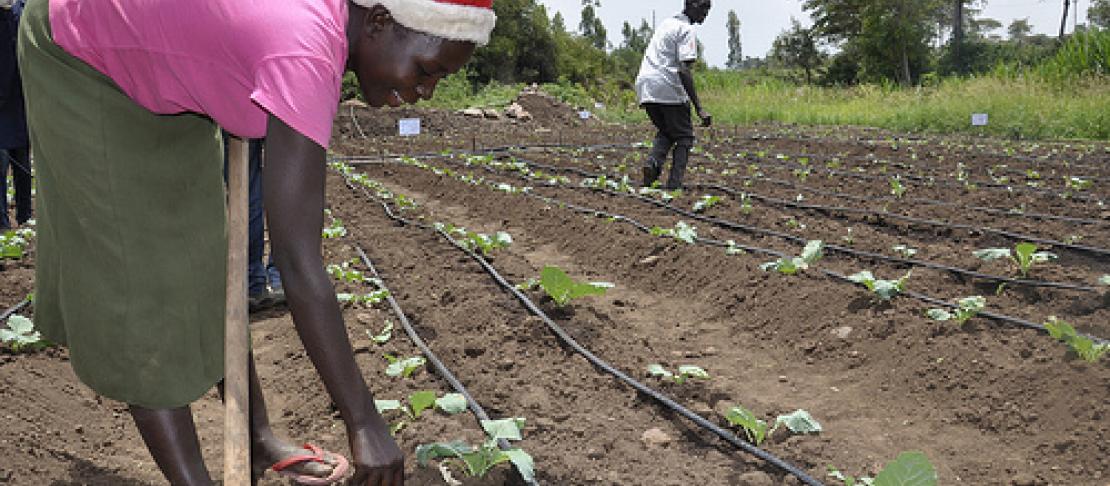
The current world population of 7.2 billion is projected to increase to 9.6 by 2050, according to a United Nations report released in June of this year. Without proper planning, ensuring food for everyone will without a doubt be a challenge.
The question then is how to sustain a rapidly growing human population while reducing agriculture’s environmental externalities, and an increasing need to mitigate and adapt to climate change related impacts? Could climate-smart agriculture (CSA) be one solution? And what are the policy implications for implementing climate-smart practices within agriculture?
To discuss these possibilities, the World Agroforestry Centre (ICRAF) organized a side event on the sidelines of the ongoing climate change talks in Warsaw, Poland. The 90 minute session on scaling up climate-smart agriculture: policies, development, adaptation and mitigation potentials was moderated by Dr. James Kinyangi of the CGIAR Research Program on Climate Change, Agriculture and Food Security (CCAFS), East Africa.
Based on the United Nations Environmental Programme (UNEP) Emissions Gap Report 2013, experts discussed how policies can enable the adoption of CSA and options to better align the development, natural resource and climate change agendas. The UNEP report finds that although pathways exist that could reach the 2oC target with higher emissions, not narrowing the gap will exacerbate mitigation challenges after 2020.
Will climate-smart agriculture then be the assistance we need?
Climate-smart agriculture promotes the use of sustainable agricultural practices in the context of food production and security, adaptation and mitigation. Previously, agriculture was seen as suffering from the effects of climate change. However, there has been a paradigm shift and more people now recognize that agriculture not only contributes to climate change but also has an important role in mitigating the impact of human activities on this phenomenon.
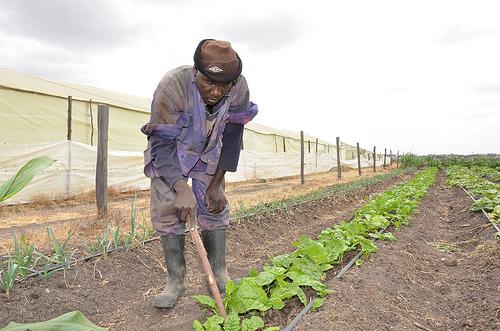
what is the POTENTIAL role of agriculture in mitigation? EXPERTS ARGUE THAT AVAILABLE SCIENTIFIC DATA IN THIS AREA IS STILL TOO LITTLE. PHOTO: S. KILUNGU (CCAFS)
Learn more about how climate-smart agriculture is improving the lives of millions of people all around the world
“Agriculture practices can provide emission reductions and co benefits," said Merlyne Van Voore of UNEP. "Some of these agricultural practices include non-tillage, System of Rice Intensification and Evergreen Agriculture." she continued during her presentation.
However “very little scientific data is available to provide a case for agriculture as mitigation potential,” noted Dr. Henry Neufeldt, who leads the climate change research unit at ICRAF.
Neufeldt emphasized the need to focus on agricultural policies that have direct development and food security benefits; and mitigation as a co-benefit.
Secondly, the global community is not moving as fast as expected to reduce emissions.
Read more from our blog on the potential role of agriculture in mitigation: Rolling up our sleeves: agriculture, landscapes and greenhouse gas emissions
“We need ambitions and bold pledges that can provide a springboard to the global community towards maintaining emissions of below 44 gigatons by the year 2020. We must focus on agriculture,” noted Merlyn Van Voore of UNEP.
National Climate Change Adaptation Plans (NAPs) become very important to this effect. Already some countries are moving towards the implementation stage yet others are still designing these plans - like Kenya in East Africa: Agriculture in focus: climate change planning in Kenya
The panelists agreed that climate-smart agriculture can be a holistic agricultural approach that needs to be intensified at various scales.
“National adaptation plans should be context specific,“ remarked Heru Prasetyo, Secretary of the National REDD+ Task Force, Indonesia. However, significant adoption barriers exist including lack of informed proactive policies, fluctuating markets and prices, insecure tenure, poor financial incentives, climate variability and scarce resources. Panelists agreed that barriers should not deter promotion of CSA practices as they are very important in mitigating against emissions.
The CGIAR Research Program on Climate Change, Agriculture and Food Security (CCAFS) has adopted a partnership-approach in its Climate-Smart Villages.
These are learning sites where researchers, development partners, and government extension agents come together to test a portfolio of promising climate change adaptation, mitigation, and risk management interventions. To better help farmers make better decisions, climate services are incorporated in the villages.
View presentation about the climate-smart village projects:
Read more about how CCAFS is influencing farmer decisions: Climate-services for smallholder farmers.
Speakers felt the Involvement of youth and women farmers was really key for progress: “80% of food consumed in Africa is produced by women and hence they could adopt CSA better” said Ambassador Sisulu from South Africa. She emphasized the need for CSA to be farmer smart as this would ensure greater success.
Which way forward?
Can climate-smart agriculture provide the nexus between food security, sustainable development and emission reductions? There is need to further explore this issue further and to provide a scientific case. Climate-smart agriculture is however necessary at this point in time and should be applied at various scales.
Learn more on this topic on the World Agroforestry blog: How to improve our understanding of climate-smart agriculture.
Read more about involvement of youth and women in CSA activities:
- Villages can be climate resilient. This is how!
- Empowering women farmers to feed the world
- Injecting gender-awareness into climate-smart farming innovations
Vivian Atakos is a Communication Specialist while Dr. Mary Nyasimi is a Gender and Policy Specialist. They all work for CCAFS EA.
The CCAFS team is reporting live from the UNFCCC climate talks in Warsaw, 11-22 November 2013. Click to read all of our coverage. For live updates from the Climate talks in Warsaw, follow us on twitter @cgiarclimate and @bcampbell_CGIAR. Join the conversation using #GLFCOP19.

